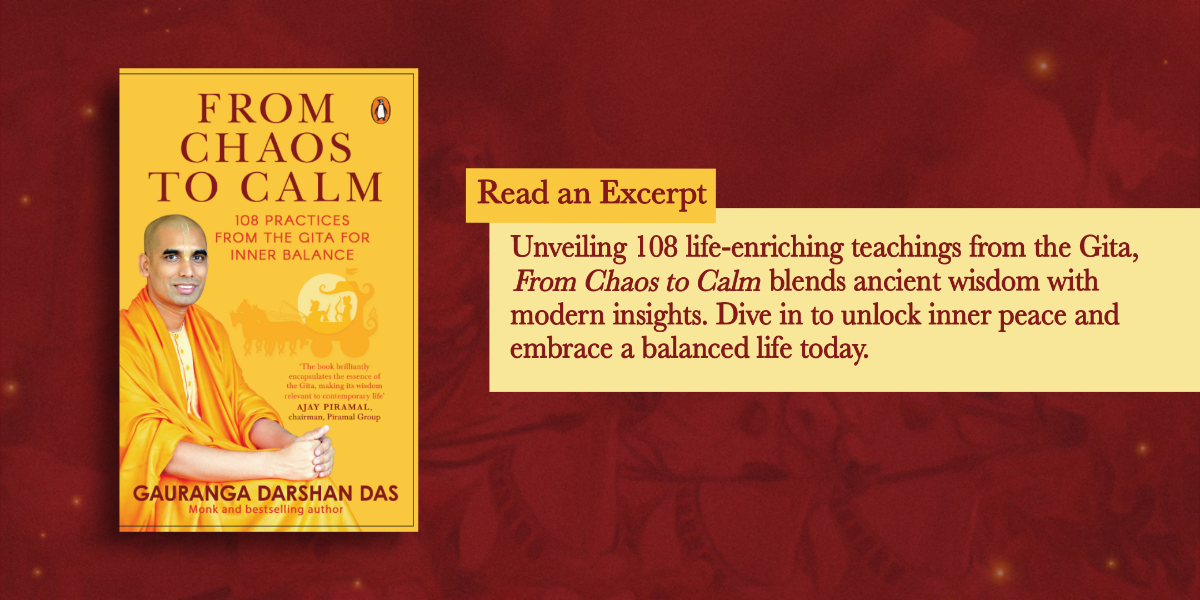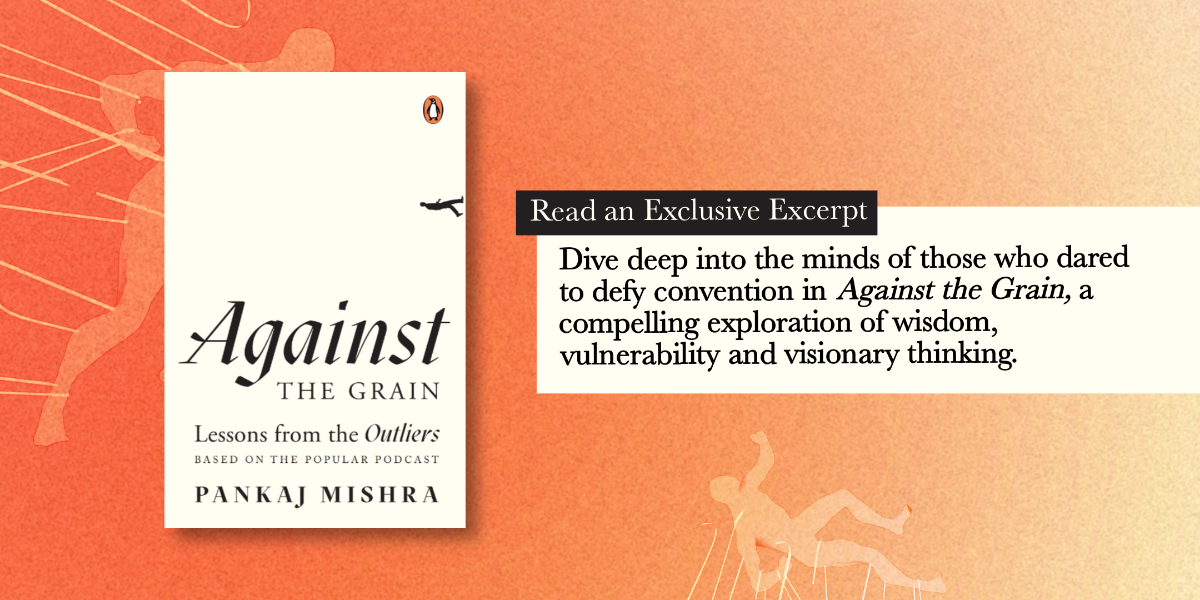Feeling overwhelmed by the chaos of everyday life? From Chaos to Calm by Gauranga Darshan Das is here to help. In this excerpt, find out tips to calm your restless mind by treating it like a curious child—guiding it with gentle care. Dive in and discover practical tips inspired by the Bhagavad Gita to find peace and focus in your daily life.

***
Finding Peace Amidst Distractions
Once, I saw a little boy, hardly a year old, sitting on his mother’s lap, as she busied herself in a conversation with her friend. The boy was joyful and smiling. Every now and then, he tried to get out of his mother’s lap, or extend his hands and touch the objects around him.
When he touched a fruit, the mom smiled and allowed him to play with it. In a few moments, he threw the fruit, and it rolled on the ground. He crawled behind it for a few baby steps, but eventually gave up the chase. Then, he found a knife nearby and picked it up. His mother immediately came over, took it away and put him back on her lap. He was disappointed and flapped his hands and legs for freedom. So his mother offered a toy to pacify him, and he played with it for a while. Then, he left the toy, took his mother’s handbag and tried to put its belt into his mouth. His mother gently pulled it away as she continued to converse. She also put the toy back in her son’s hands. And this continued to happen . . .
Whenever the child touched something soft and harmless, the mother would allow him to do so, but when he reached out for something harmful, his mother immediately took it away and brought him back to her lap. Even when the baby cried, the mom comforted him and kept him on her lap. And this is how we need to control our curious, restless, fickle and unsteady minds. Interesting, isn’t it?
Getting distracted is natural, but remaining distracted is harmful.
The Kid Called Mind
The mind is like an innocent kid, lively and curious. To keep the mind calm and composed amidst the chaotic distractions of this world is a great challenge. The mind is also a storehouse of all kinds of thoughts, desires, emotions and feelings. Some of them positive, while others are negative. The mind collects all these impressions through the senses and interactions with people around us. The mind is always eager to explore everything, but it doesn’t know what’s right or wrong, good or bad. That’s where our intelligence comes in, just like a mom guiding her child. Intelligence keeps a watchful eye on the mind’s activities, just like a vigilant mother, and practises bringing the mind’s focus back to the task at hand. But our intelligence will function in this way only when it has been trained and sharpened. Now, the question is: Are we prepared to do so?
Two Keys to Tame the Mind
Lord Krishna responded to Arjuna’s concern by presenting two effective tips to regulate the mind’s distractions. He said:
asamśayam mahā-bāho
mano durnigraham calam
abhyāsena tu kaunteya
vairāgyeṇa ca gṛhyat
‘O mighty-armed Arjuna, it is undoubtedly very difficult to regulate the restless mind, but it is possible by (1) Practice (abhyāsa) and (2) Detachment (vairagya).’
Lord Krishna also describes the hierarchy of the body’s elements, and says, ‘The senses are inferior to the mind, and the intelligence is superior to the mind.’
Because the mind is positioned between intelligence and the senses, we can regulate the mind from both sides by (1) Sense Control, and (2) Sharp Intelligence.
Combining the above two pairs of keys, we can tame our mind with the following two actionable practices, the first external and the second, internal:
1. Practise Sense Control
2. Cultivate Detachment with Intelligence
1. Practise Sense Control: The senses act as the entry points through which the mind receives various impressions. Therefore, by regulating the senses from overindulging in the sense objects, we eventually bring the mind under control. By doing so, we restrict unnecessary inputs to the mind, and thus regulate the mind’s distractions. This is the external way to tame the mind. As mentioned before: ‘Out of sight, out of mind.’
2. Cultivate Detachment through Intelligence: Although keeping distractions physically out of sight is a good way to control the mind, our inner thoughts can distract us too. With sharp intelligence, we should dismiss such thoughts, and cultivate detachment from things that are unfavourable for our well-being. Knowing the transient nature of the pleasures of this world helps us be detached from them. We can sharpen our intelligence by doing two things: (1) reading wisdom texts like the Gita and (2) learning from experienced people.
The mind can be brought from distraction to concentration, by using scriptural intelligence to analyse its thoughts and align them with values. Thus, by restricting the senses externally and sharpening the intelligence internally, we can tame our unsteady mind and make it our greatest friend.
When a lamp in a windy place wavers, we protect its flame by enclosing it with our hands. Similarly, we need to protect the flame of our minds from the wind of distractions with the hands of our intelligence.
***
Get your copy of From Chaos to Calm by Gauranaga Darshan Das on Amazon or wherever books are sold.









